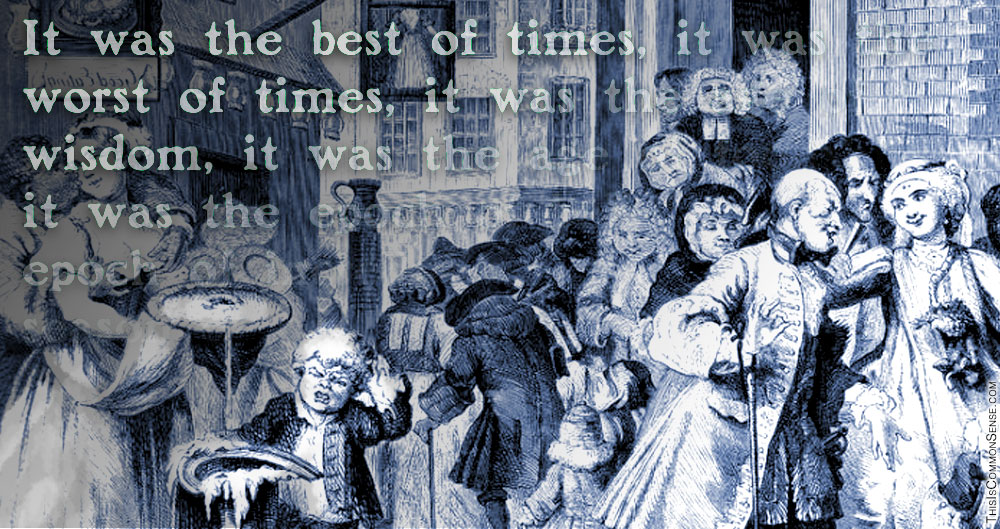“It was the best of times, it was the worst of times,” begins Charles Dickens’ popular 1859 novel, A Tale of Two Cities. The British master was not prophesying our times. He was describing the period of the French Revolution.
But the judgment feels awfully familiar.
Over at the Foundation for Economic Education, Antony Davis and James R. Harrigan talk up the case for “the best of times,” for optimism: “Global illiteracy rates are below 14 percent. Global rates of extreme poverty are below 10 percent. Despite there being more people currently alive on the planet than ever before, there are also more calories per capita than ever before.”
Davis and Harrigan provide actual reasons for thankfulness as we meet the New Year.
Is there a case for pessimism, nevertheless? Yes. And Davis and Harrigan discuss at length a topic covered here earlier this month: the Ballou High School educational improvement scandal.
Optimism and pessimism, rationally speaking, fall into two camps: private sector progress and government-sector regress.
So, following Dickens’ checklist, ours is an age of
- wisdom and foolishness — check (both)
- belief and incredulity — check (pick your subject)
- Light and Darkness — check (just move your eyes from higher ed’s hard science departments to the humanities)
and on and on.*
But the most unsettling thing about the “best of times” is that sometimes the great feeling of ebullience can end suddenly: one feels great in free fall — unburdened! free! — right before one hits the pavement.
Splat.
Maybe the best thing we can do this coming New Year is watch our governments as if we were hawks. To avoid the splat.
This is Common Sense. I’m Paul Jacob.
* Dickens’ long and memorable first paragraph: “It was the best of times, it was the worst of times, it was the age of wisdom, it was the age of foolishness, it was the epoch of belief, it was the epoch of incredulity, it was the season of Light, it was the season of Darkness . . .”











